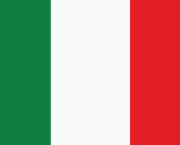The Online Story
Because of the EU investigation of 2006, Italy was forced to liberalise its online gambling market. The reason behind the investigation was due to the extremely strict laws in the country, which prohibited even legitimate and licensed European gambling operators to offer their online services within. At the time, only the Italian National Olympic Committee (CONI) and the National Horse Breeders Enhancement Society (UNIRE) were allowed to arrange sports betting offline and online. Also as this time, the blacklist of websites which did not have Italian licences and should have been blocked contained 621 websites, which included sites run by operators licensed in other EU countries. The country violated EU Directive 98/34/EC with this list, as they did not inform the EC about the list.
Once the EC brought forth their infringement proceedings against Italy, the authorities in the country notified the Commission of the amendments to the gambling law in 2009. The law, which came in to operation in March of 2010, allowed foreign operators the ability to solicit Italian residents, provided they are holders of a domestic licence in the first instance. Today, companies within Italy as well as those based outside of the country’s borders are able to provide online gambling games to citizens of the country.














